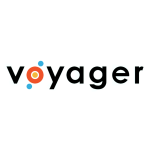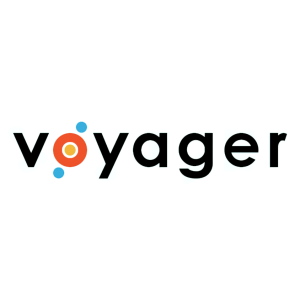Welcome to our dedicated page for Voyager Therapeutics news (Ticker: VYGR), a resource for investors and traders seeking the latest updates and insights on Voyager Therapeutics stock.
Voyager Therapeutics Inc (VYGR) is a leader in developing gene therapies for central nervous system disorders through its proprietary TRACER™ platform. This page provides investors and researchers with essential updates on clinical developments, strategic partnerships, and scientific breakthroughs in AAV-based treatments.
Access curated press releases and news articles covering key milestones in Voyager’s pipeline, including therapies for Parkinson’s disease, ALS, and Friedreich’s ataxia. Stay informed about advancements in blood-brain barrier penetration technology and preclinical validation studies across multiple species.
Our repository features updates on clinical trial progress, regulatory developments, and collaborative research initiatives. Discover analysis of vector optimization achievements and manufacturing scalability efforts critical to gene therapy commercialization.
Bookmark this page for consolidated access to verified information about Voyager’s neurogenetic innovations. Check regularly for objective reporting on therapeutic candidate progression and industry leadership in CNS-targeted gene delivery solutions.
Voyager Therapeutics (Nasdaq: VYGR) has appointed Catherine J. Mackey, Ph.D., to its Board of Directors, effective August 15, 2022. Dr. Mackey brings over 30 years of experience, notably at Pfizer, where she led R&D initiatives. Her expertise in strategic collaborations is expected to enhance Voyager's TRACER capsid discovery platform and pipeline development. CEO Al Sandrock emphasized the significance of Dr. Mackey's appointment at this pivotal moment for the company, aiming to leverage her knowledge for advancing AAV gene therapy solutions.
Voyager Therapeutics (Nasdaq: VYGR) recently presented promising preclinical data on its TRACER capsid platform at the ASGCT Annual Meeting. The novel AAV9-derived capsid, VCAP-102, showed significant enhancements in brain transduction—60-fold in non-human primates and 50-fold in mice—compared to conventional AAV9 capsids. The data indicate potential therapeutic benefits for CNS disorders, including GBA1, tauopathies, and SOD1 ALS. These advances support Voyager's ongoing gene therapy developments aimed at improving treatment for patients with severe neurological conditions.
Voyager Therapeutics (Nasdaq: VYGR) announced promising preclinical findings on its anti-HER2 antibody program at the ASGCT Annual Meeting. The TRACER AAV9 variant, VCAP-102, significantly reduced CNS tumor burden and enhanced survival in mouse models of HER2+ breast cancer, achieving a median survival of 129 days compared to 94 days for controls. Additionally, a novel AAV5-derived variant, VCAP-100, showed improved CNS transduction in non-human primates, indicating its potential for clinical development in CNS-targeted gene therapies.
Voyager Therapeutics (VYGR) presents significant advancements at the ASGCT Annual Meeting, showcasing preclinical data on its novel TRACER™ AAV capsids, demonstrating enhanced CNS tropisms and cross-species translatability. Key highlights include a license agreement with Novartis, providing $54 million upfront for potential CNS applications. The company reported Q1 2022 revenues of $0.7 million, down from $6.5 million YoY, and a net loss of $21.3 million. Strong cash position of $166.8 million expected to fund operations into 2024.
Voyager Therapeutics (NASDAQ: VYGR) has announced nine presentations for the upcoming ASGCT 2022 meeting from May 16-19 in Washington, D.C. Highlights include new findings on TRACER™-generated AAV capsids, focusing on glial cell tropism, and a novel vectorized antibody approach targeting metastatic breast cancer. Notable presentations will cover improvements in CNS-targeted AAV vectors and gene therapies for ALS and other neurological diseases. CEO Al Sandrock emphasized the importance of these data in shaping Voyager's pipeline strategy.
Voyager Therapeutics announces the appointment of Dr. Alfred W. Sandrock, Jr. as CEO, succeeding Michael Higgins who served as interim CEO since June 2021. Dr. Sandrock, a prominent neuroscientist with a strong background in therapeutic development, aims to enhance Voyager's efforts in AAV gene therapy. His leadership is expected to drive advancements in Voyager's TRACER™ capsid discovery platform, potentially broadening applications for various diseases. The company is focused on achieving human proof of concept for its internal pipeline and has established licensing agreements with major pharmaceutical firms.
Voyager Therapeutics, Inc. (Nasdaq: VYGR) has announced a license option agreement with Novartis for access to its TRACER™ AAV capsids, targeting three CNS applications and options for two additional targets. This deal, alongside a previous Pfizer agreement, extends Voyager's cash runway into 2024 with total upfront payments of $84 million. The company reported a net income of $5.7 million for Q4 2021, improving from a loss in Q4 2020. However, the full year net loss was $71.2 million, primarily due to terminated collaborations. Leadership changes include the appointment of Al Sandrock, Jr. to the Board.
Voyager Therapeutics has entered a significant agreement with Novartis, receiving $54 million upfront and potential milestone payments up to $1.7 billion. The deal allows Novartis access to Voyager's TRACER AAV capsids for three central nervous system (CNS) targets, with options for two more. Voyager could also gain royalties from product sales. The TRACER platform is expected to enhance gene therapy delivery, reducing toxicity risks. This follows a previous collaboration with Pfizer, emphasizing Voyager’s growing capabilities in AAV gene therapy.
Voyager Therapeutics (Nasdaq: VYGR), a gene therapy innovator, has announced its participation in two upcoming virtual investor conferences. The company will present at the SVB Leerink 11th Annual Global Healthcare Conference on Feb. 18, 2022, at 9:20 a.m. ET, and participate in a corporate panel at the Cowen 42nd Annual Health Care Conference on Mar. 9, 2022, at 12:50 p.m. ET. Investors can access the sessions on Voyager's website and replays will be available for at least 30 days.
Voyager Therapeutics (Nasdaq: VYGR) announced the appointment of Alfred W. Sandrock, Jr. to its Board of Directors and the promotion of Robin Swartz to Chief Operating Officer, effective February 7, 2022. Dr. Sandrock, a seasoned drug developer with extensive experience at Biogen, will help steer Voyager's strategies for its TRACER™ AAV capsid screening platform and foster collaborations. Ms. Swartz will oversee several operational departments, marking a strategic leadership change aimed at enhancing the company's gene therapy initiatives.


